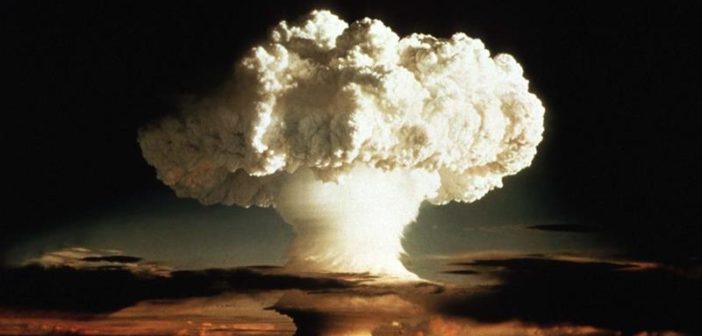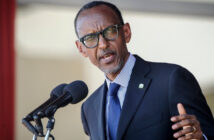Hydrogen bombs, or H-bombs, are far more powerful than the relatively simple atomic bombs.
As opposed to the atomic bomb – the kind dropped on Japan by the US in the closing days of World War II – the hydrogen bomb can be 1,000 times more powerful.
North Korea’s first three nuclear tests from 2006 to 2013 were atomic bombs on roughly the same scale as the ones used on Hiroshima and Nagasaki, which together killed more than 200,000 people. But the test today by North Korea is of a different scale test as it has been estimated to have a yield of about 100 kilotons, 10 times stronger than last year’s test that caused a 5.3 magnitude quake.
The hydrogen bomb, also called a thermonuclear bomb, uses fusion – or atomic nuclei coming together – to produce explosive energy. Stars also produce energy through fusion.
Atomic bombs rely on fission, or atom-splitting, just as nuclear power plants do.
The technology of the hydrogen bomb is more sophisticated, and once attained, it is a greater threat. It can also be made small enough to fit on a head of an ICBM.
“Such a device could evaporate the entire city of New York completely – no one would stay alive,” Andrei Lankov, a professor of Korean studies at Kookmin University in Seoul, told Al Jazeera.
“With an atomic bomb you can kill half of Manhattan, at most.” While much more potent, H-bombs are also much more costly.
“For the North Koreans to have such a powerful and expensive [device]is a bit of overkill – it simply does not make sense,” Lankov said.
“It’s like buying a Porsche to go shopping in a shop nearby… It’s a very expensive programme which will not really make a major contribution towards their security. But governments sometimes do crazy things.”
The hydrogen bomb is the global standard for the five nations with the greatest nuclear capabilities: the US, Russia, France, the UK and China.
Other nations may also either have it or are working on it, despite a worldwide effort to contain such proliferation.
Kune Y Suh, a nuclear engineering professor at Seoul National University, called Sunday’s test a “game changer”.
“North Korea has effectively established itself as a nuclear state. This is not just a game changer, it’s a game over,” Suh said.
Source: AlJazeera




